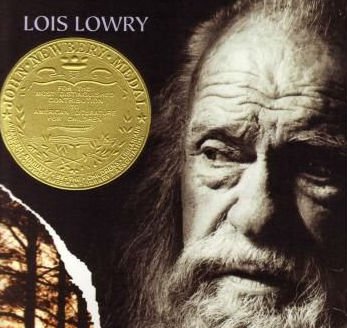
When I was a kid, I had a series of discussions with my dad about some amazing books I had read, including some in the list below. I described for him in detail the strange, dystopian worlds I had been reading about, and expressed dismay and indignation at the horrific totalitarian societies my beloved characters were forced to endure and fight.
Dad was a Republican, but a libertarian-leaning one. He might have been an anarchist himself, if he'd been born a little later. He shared (and probably taught me) my love of dystopian fiction and my distrust of authority. During our book discussions, he would weave in true stories and accounts of oppressive regimes that actually existed in the real world. Using the socratic method, he instructed me on geography, politics, economics, and history during these conversations, but I never noticed that was what he was doing. My mind was blown. This stuff could actually happen? People could really behave this way, outside of the pages of a book? There were actually people dumb enough, gullible enough, to support psychopathic dictators on their ride to power? Or to give up their property, liberty, even their individual identities, to "benefit" a collective that only devoured all resources and destroyed everything good as it gained momentum?
For my birthday that year, Dad gave me a copy of 1984 by George Orwell. It might have been a bit dark for a 12-year-old, but I was hooked. After I finished it, he recommended Brave New World by Aldous Huxley, Slaughterhouse Five by Kurt Vonnegut, and several other science fiction dystopias that would form the literary foundation of my lifelong antiauthoritarianism.
Now, I am a mother. In facilitating my daughter's education (we homeschool), my most important goals for her are that she learn to think for herself, reject artificial authority, and understand the dynamic between freedom and responsibility. So it is not enough that I tell her "government is inept" and "democracy is mob rule" and "taxation is theft". She needs to develop an understanding of these things, independent of her trust that what I tell her is the truth.
In this case, I am the authority, and I want her to question me. I want her to read widely and consider differing views and opinions, instead of parroting what I say or blindly following my beliefs. So I don't limit her intake of ideas. I don't restrict her reading to only those books that support my narrative, or try to shield her from movies that paint a "big brother is your friend" picture of how civilization works.
But I do slip certain books in the pile, or queue them up on the audiobook app, or offer to read them to her at bedtime. This is how I make sure she's exposed to great literature that speaks truth to power, that highlights individualism, that demonstrates the dangers of forced collectivism.
Some of the books in this list are, without a doubt, libertarian works. Others are very popular books for children or young adults that, while they may not support a wholly libertarian worldview, do feature important threads of story that beautifully illustrate certain libertarian themes. I like to discuss these themes with my daughter, and question what the author got right or wrong in the story.
1. The Giver
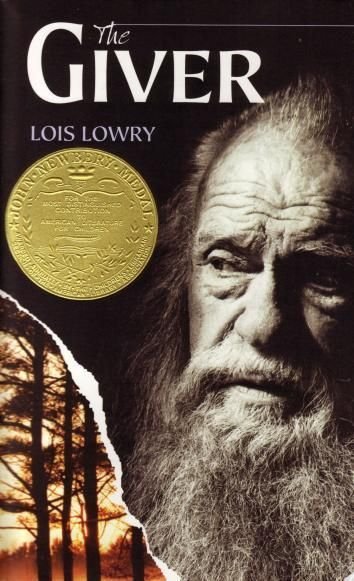
In this classic sci fi dystopia by Lois Lowry, a boy must come to terms with the dark reality of the "perfect", engineered society in which he lives. Is it okay to artificially dull the emotions of an entire populace if, by doing so, you can bring lasting peace? Is it moral to euthanize the elderly and the frail, in order to maintain the illusion of a happy, healthy, and strong society? Can people whose lives are preordained by government, down to who they can marry and what jobs they must do, ever perform a truly independent action, or have a truly free thought? Grapple with these questions and more as you read this gripping novel with your kids.
2. A Wrinkle in Time

This short novel by Madeleine L'Engle is at once whimsical and powerful. In it, a brother and sister must travel to another planet in another dimension to save their father from a totalitarian, mind-controlling force that threatens to overtake the whole universe. This book does a really great job of illustrating why imperfect individualism will always be better than enforced conformity.
3. The Lord of the Rings Trilogy
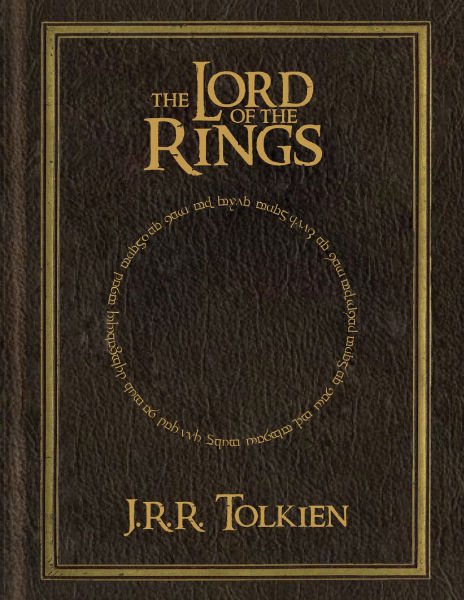
J.R.R. Tolkien may have been an anarchist himself. At least, he insinuated as much in letters to his son. In the Lord of the Rings, a group of hobbits venture away from their home in the Shire (a delightful, probably anarchist society) to destroy the ring of power and save Middle Earth from the encroaching forces of Lord Sauron, a magically evil tyrant. On the way, they make friends and form alliances with elves, dwarves, and men--three groups that have historically been at odds. All of Middle Earth's creatures must unite to defeat the grim reign of Sauron.
Of course, this trilogy is a must-read for anyone who enjoys fantastical fiction, and chances are, you've probably read it yourself. Or at least seen Peter Jackson's cinematic treatment (the best movie version of a classic book EVER.) And there are obviously strong themes of liberty and anti-statism running throughout. But to dig deeper with your child, you'll want to discuss where Tolkien's epic went wrong. Will Aragorn really be a good king? Is it even possible to be a good king? Will the return of the king to Minas Tirith really mean the return of peace to Gondor? How long can that peace last?
4. The Little House Books
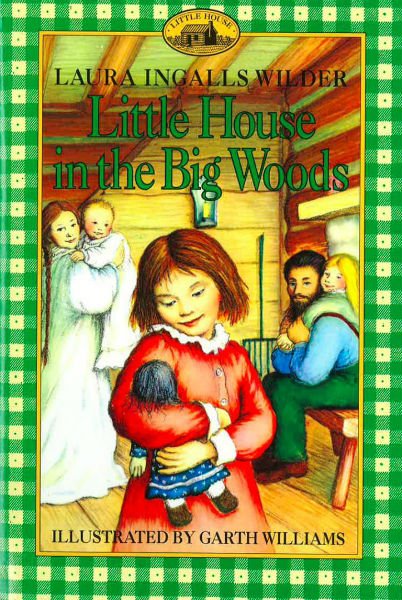
More classics! These books by Laura Ingalls Wilder deserve their spot on this list mainly due to their strong themes of self-reliance. (It's no surprise that self-reliance is such a big focus in this series. It's a little-known fact that the Little House books were ghost-written by Laura's daughter, Rose Wilder Lane, who is one of the three celebrated "mothers of libertarianism"!) These books are a great read for any age.
5. Red Scarf Girl
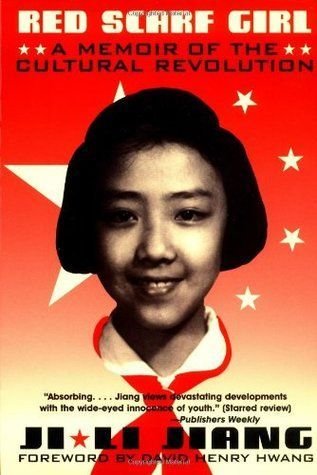
I just finished reading this autobiography to my daughter, and holy shit, living in China during the Cultural Revolution was absolutely terrifying.
Jiang Ji-Li, a girl growing up in Shanghai, thinks her life is perfect. She lives with her loving family in a one-room apartment with its own bathroom. She is smart and well-liked at school, and knows that her country will always strive for even greater strength and equality under the revolutionary guidance of her beloved Chairman Mao. But then the Cultural Revolution begins. Soon, Ji-Li's life is in turmoil due to the fact that her grandfather (who died many years ago) was a landlord--an enemy of the revolution. Ji-Li is not allowed to attain her dream of becoming a red guard. Her family's apartment is raided for evidence of counterrevolutionary activity. Her mother and father face censure at work, and even Ji-Li's friends at school turn against her. The story culminates in an unimaginable choice for Ji-Li: the revolution requires her to testify against her father at a public shaming session, and to break with her rightist family once and for all. If she does this, she can be assured of a good political reputation, and good prospects for her future. If she chooses not to betray her family, she will be punished, marked as a counterrevolutionary for the rest of her life.
If you want your kids to really comprehend what it means to cede freedom to the state in exchange for forced equality, and learn some history while they're at it, get them this book!
6. Heidi

Here's a book you might not expect to find on a list of books for anarchist kids. But it belongs. The author, Johanna Spyri, was a woman who valued individualism and independence in children at a time when the prevailing attitude was that children should be seen and not heard. This is a sweet novel that explores themes of family, love, freedom in education, neighborliness, and self-reliance.
7. The Harry Potter Series

Okay, so J.K. Rowling is by no means an anarchist, and the world of Harry Potter is not in any way an anarchist utopia. But these are great books. The coolest part about them is the settings, in which even the smallest details are made real for the reader. The characters are highly relateable, and the magical world of Hogwarts is just plain fun. But there is also a distinctly antiauthoritarian sentiment woven through the series, that grows stronger and stronger as the story progresses. In the final three books, this sentiment becomes the driving theme of the narrative, as Harry and his friends must fight the rise of the evil, psychopathic tyrant, Voldemort, while their plans are thwarted at every turn by the well-meaning ineptitude and convoluted rules of the Ministry of Magic. These books are especially fun to read aloud with your kids, and to discuss afterwards.
8. Soft Rain
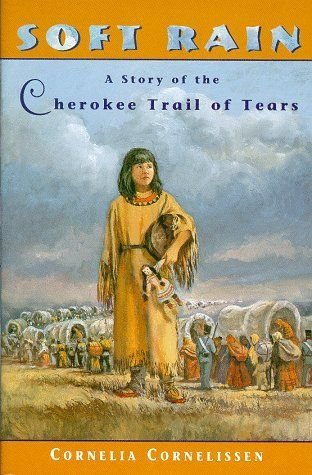
Novels about real historical events can be a great source of fuel for your child's fire of dissent. Unlike with history textbooks, novels allow you to get inside the historical event, to see what people actually saw and feel what people actually felt. Soft Rain is a fictionalized account of one Cherokee family's displacement from their ancestral lands to a government reservation on the Trail of Tears. In its pages, you will encounter the four biggest enemies of freedom: People who think "it can't happen to me"; Soldiers who are "only doing their jobs", People who fear other cultures and ways of life just because they're different; and Bystanders who watch sadly as others are oppressed, but don't do anything because "I'm only one person".
9. The Adventures of Jonathan Gullible
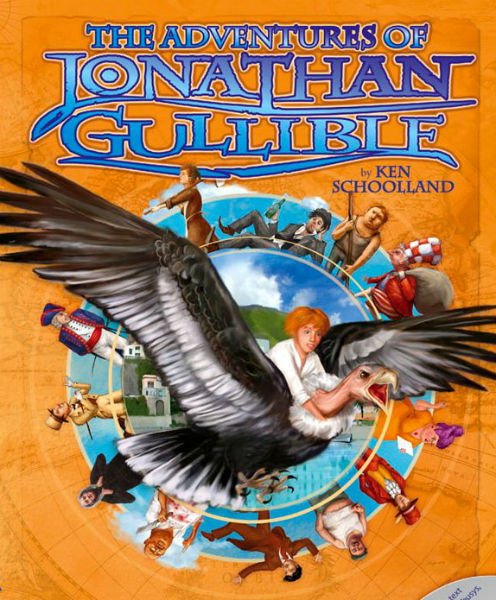
This book is both a satirical novel and a textbook on economics and the principles of liberty. The protagonist, Jonathan Gullible, travels through a foreign land where people do things that just don't make sense. He encounters a tragedy of the commons, meets the food police, attends the special interest carnival, and finally must go before the Grand Inquirer, who will decide his punishment for trying to bring sense to this strange land. This book has big, colorful illustrations, and it's a lot of fun. The economic and political concepts it introduces are probably more digestible for the 10-and-up range, but younger kids will enjoy the story and pictures and be able to skim some good lessons off the top.
Ha! I homeschooled my kids for many years. We read many of the books on your list. I never thought about them in the way you explain, but I guess it makes sense. We enjoyed them and they turned out to be smart, creative kids. Enjoy your homeschool journey!
Thank you for this post! We have read many of these stories to our children but there are a few that I will be adding to the list, like the Giver and Red Scarf Girl. We absolutely love the Little House books and the Lord of the Rings Trilogy for the very themes that you have mentioned. Excellent list. Very important and thought provoking.
I read The Giver in 7th grade as part of public school curriculum. I tried to get my daughter to read it a few ears ago as she LOVES dystopian novels but the fact that "mom" recommended it was a turn off. I hope that the books she does read are teaching her similar values.
Great piece! I read 1984, A Wrinkle In Time, The Tolkein Trilogy (and The Hobbit), Brave New World and lots of Vonnegut when I was a teenager. These authors definitely influenced my world view evermore! Thanks for the reminder.
Wonderful list of books and really thinking outside the box! I especially wouldn't have thought of Heidi but you know I think you're right, it's a great tale for encouraging an independent mind.
Thank you 😎
I worry about balance with my children as well. I try to get them to understand that human nature underlies all systems, and thus you have to respect its abilities but also its downsides. Tricky to walk that line between patriotism and suspicion. Thanks for a great list of books!
I strongly feel that young people should be exposed to a good mix of great and horrible ideas, and provided guidance to learn the difference.
@gwiss The for children and adults come from having a refined system of logic and possessing critical thinking (not the mental assent brand). For example, I have long held that 1984 was a book of braggadocio by a hardcore statist, Eric Blair (George Orwell). The best thing about this book is the demonstration of how the state utilizes the Hegelian Dialect upon the sheople. I probably just gave a bunch of people heart attacks, but the truth can be a hard slap to the face. BTW, for anyone who would care to respond, I am prepared to back it up.
I'm not prepared to reject the idea out of hand--having read some of Orwell's other books, I know he was a colossal statist. I'd welcome reading your arguments. :)
@lesliestarrohara Animal Farm was a complaint about the Soviet "excesses." The hypocrisy and brutality were a bit much for the ivory-tower Fabianists. The purpose of 1984 was to show that resistance was futile. O'Brien reveals to Winston Smith that The Theory and Practice of Oligarchical Collectivism was written by the party's leadership.
Winston's relationship with O'Brien was based upon thinking that he was a member of the Brotherhood. Fast forward to the world that we know, this was virtually the strategy and tactics which were employed in the events leading up to the Tiananmen Square Massacre.
In critical thinking, one must vet, vet, vet and apply the rudiments upon his/her self to test all self-developed theories and new information. We see gatekeepers, today for ideology-isms, with the likes of Noam Chomsky and Drug-Rush Limbaugh, defining their respective linear domains. It is planned opposition on full view.
Wrote a post about it.
@gwiss Good stuff; gave you an upvote over there. I am in the process of laying this all out in detail, but not the Three Mile Island kind (TMI). I've posted the first four parts in a series on the real American history and the fifth should be posted tonight.
I had to Resteem this gem!
Thanks, @hilarski!
Wow, this is awesome. I read the Giver and a Wrinkle in Time as a teenager. Then 1984 and Brave New World as an Adult. These books are so important. They should be required reading. They really did shape my political beliefs.
I've got a few books pending, then. Have read too few from the list for my liking.
I wanna know a bit more about homeschooling, so I'm going to follow you :)
I haven't written many posts about homeschooling, but I should probably start doing so. I know a lot of people out there are looking for information and support.
Count me in. I would love to learn more as well. Thanks and great post by the way. Following.
Now that is a good variety of some great literature! My daughter is about to turn 6 months and I've been wondering what books I can get her into besides good night moon and 12 little monkeys :) I know I am probably thinking ahead a little too far, but this is a fantastic start! I've read a few and the ones I haven't you've sold me on. Thanks for putting this together Starr!
It's been a while since I watched the movie Gattaca. But that story comes to mind when I think of scary future societies.
It's never too early to think about building your child's book collection!
Thanks for this. There are a few here that I'm going to be adding to my daughter's pile of books to read. She's also homeschooled, as was her brother. Really thoughtful write-up!
@lesliestarrohara A wonderful tilt that you have produced. Now, since you have asked, I nominate The Sleeping World: A Novel by Gabrielle Lucille Fuentes.
A great selection - you're really doing well by your kids with homeschooling.
Funny story: my mother was great about reading to us when we were little, but she really didn't know a damn thing about books. When I was vie, she came across a copy of Animal Farm and started reading it to me in bed. At first I was entranced by the antics of the pigs and the chickens, but after the fourth night I told her it was kind of "sad" and "boring". We went back to Richard Scarry after that.
Haha! Animal Farm was one of the first "adult" books that my Dad referred me to. I think I was about 12 when I read it.
Excellent list. I have read most of these, but not all.
We homeschool our children, too.
I like the way you describe balancing your parent (authority) role with respecting your child's autonomy as much as possible! Not an easy quest and I feel joy seeing how much it means to you. Fyi The Giver was made into a film that I highly recommend.
This post has been ranked within the top 80 most undervalued posts in the second half of Aug 15. We estimate that this post is undervalued by $16.53 as compared to a scenario in which every voter had an equal say.
See the full rankings and details in The Daily Tribune: Aug 15 - Part II. You can also read about some of our methodology, data analysis and technical details in our initial post.
If you are the author and would prefer not to receive these comments, simply reply "Stop" to this comment.
This post received a 2.2% upvote from @randowhale thanks to @lesliestarrohara! For more information, click here!
✌✌
Great breakdown. The 1st book The Giver sounds pretty interesting. I'm gonna have to give that a read. Thanks for sharing.
i dunno about turning people into anarchists, but "the giver" and "a wrinkle in time" were pretty big influences on me just as a kid who grew into a writer with zero anarchic tendencies.
and i do be lovin me some harry potter for sure.
What wonderful memories!.. I miss my chilhood so much :-)
Nice list. When I was a teenager, I loved both Candide and Zadig from Voltaire. It helped me a lot to find some happiness.
Fantastic list.
The Giver is assigned reading in some schools.
I'm adding all those I haven't read to my list!
UpVoted and follow . Please follow me back and upvote me .